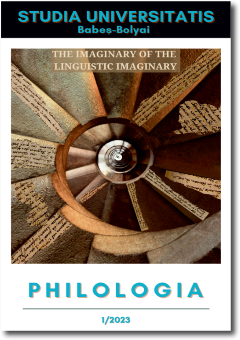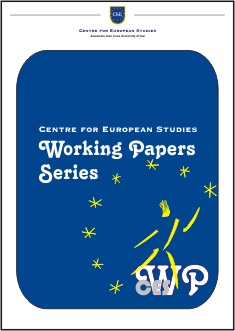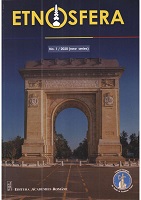SPACE AND TIME EXPRESSIONS IN THE ROMANIAN LINGUISTIC IMAGINARY
Author(s): Maria-Zoica Eugenia Balaban / Language(s): English
/ Issue: 1/2023
Keywords: space expressions; time expressions; linguistic imaginary; concept metaphor; language; cultural space;
Space and Time Expressions in the Romanian Linguistic Imaginary. This work aims to inventory, with the help of space and time conceptual metaphors, the expressions that contribute to shaping a linguistic imaginary. The expressions represent a sine qua non condition of linguistic creativity and once identified, they pave the way to other cultural spaces. The language is our home, and the way we live in it, through expressions, proverbs, sayings, represent an unstable balance between inside and outside, between up and down, between then and now, creating a protective space - time and, at the same time, exposed to the outside world’s actions. To highlight the role of space and time expressions in shaping a linguistic imaginary, we used the conceptual metaphors theories as they were defined and illustrated by George Lakoff and Mark Johnson. We will try to demonstrate that in the Romanian linguistic imaginary there is a vertical spatiality (in terms of an up-down metaphor), which belongs to the pastoral world, in which the archaic man raises his eyes to the sky in a perfect communion with the Divinity (the expressions with sky, earth, sun, moon, stars, etc.). As far as it concerns time, we will inventory those expressions and sayings that reflect, in the collective mind, the time perception between ephemerality and eternity. In the Romanian linguistic imaginary, there is an eternal temporality (the expressions with vreme, that reflect the past-present-future triad) and a stationary one, representing the measure of a time slot (the expressions with ceas that reflect simultaneity, sequence, and duration). We will demonstrate, with the help of ontological metaphors, that temporal perception, through expressions, varies depending on the different possible consciousness states (pain, joy, love, dream, etc.). The research-based result will be to highlight the space and time linguistic images and their role in shaping the Romanian linguistic imaginary.
More...



